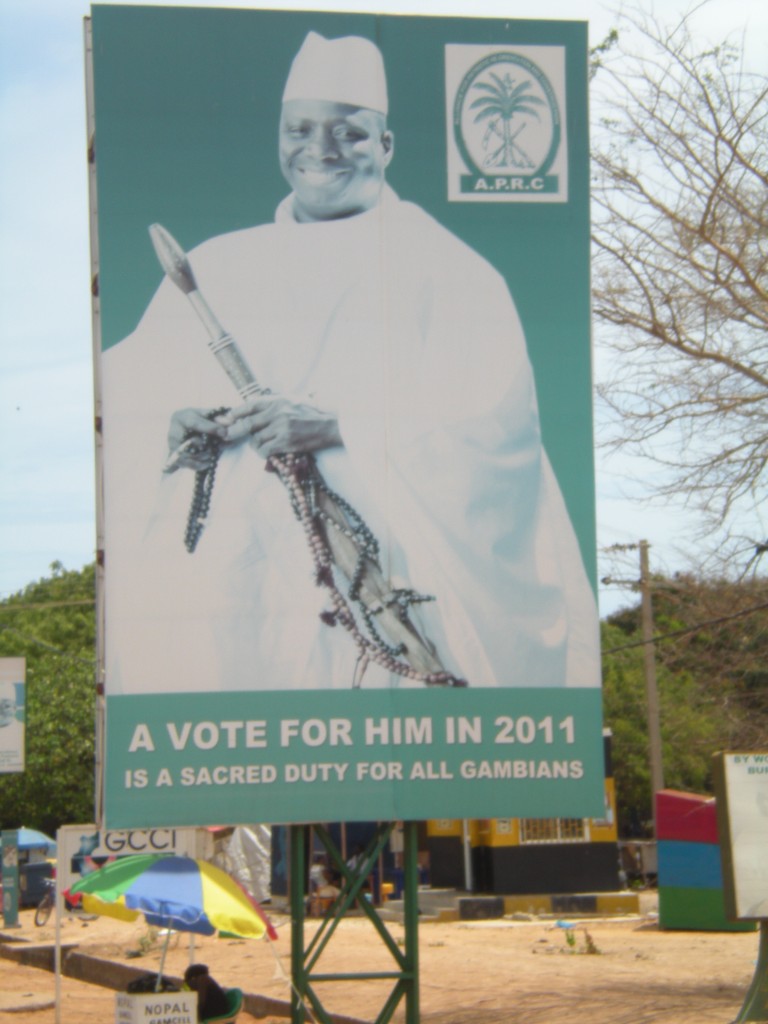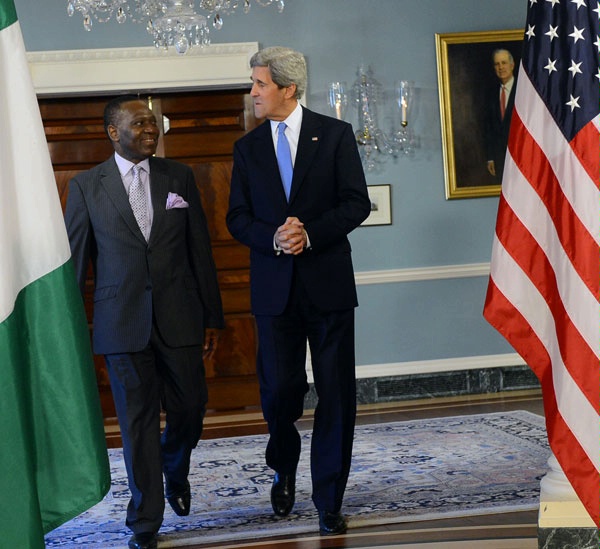During my recent trip to The Gambia, I noticed how difficult it is to drive down any of Banjul’s main roads without seeing a billboard praising President Yahya Jammah. Voting for him is a “sacred duty” proclaims one. Others portray him praying, with the headline “from darkness to light” or explain that women all support him. Now one of Africa’s longest serving dictators will be bringing his public relations campaign to Washington, where according to documents filed with the U.S. Department of Justice, he just hired a public relations firm to help polish his image.
 The firm, BGR, might want to re-think this $45,000 a month contract since Jammah’s previous lobbyist went to court to try to recover unpaid fees, according to October 16, 2006 story in Congressional Quarterly (“Lawsuit Points Up Perils of Strong Man Lobbying”). The Gambia in turn argued that the agreement did not lead to an increase in aid (and the firm lost to the government on some counts). Politico reports that the new BGR contract is to lobby for additional foreign aid for The Gambia.
The firm, BGR, might want to re-think this $45,000 a month contract since Jammah’s previous lobbyist went to court to try to recover unpaid fees, according to October 16, 2006 story in Congressional Quarterly (“Lawsuit Points Up Perils of Strong Man Lobbying”). The Gambia in turn argued that the agreement did not lead to an increase in aid (and the firm lost to the government on some counts). Politico reports that the new BGR contract is to lobby for additional foreign aid for The Gambia.
Moreover, the previous firm also faced protest from exiles of the regime, who are already gearing up for a campaign. Jammah took power in a 1994 military coup d’etat and has held carefully staged elections since then.
Journalists, activists, and politicians (including some who have worked with the regime) all told me that political space remains tightly controlled. The government aims to dominate discussion of even the more innocuous issues. In one recent example, civil society groups organized a seminar about prison conditions, in order to explore how to reduce congestion, enhance procedural access to justice, and other issues. The Jammah government responded by banning the media from attending. (See the article in African Human Rights Law Journal last year, which outlined a variety of similar problems.)
Gambians are bracing for more such incidents following passage of the “Criminal Code (Amendment) Act, 2013” also known as “The Principal Act,” which the National Assembly passed unanimously April 16. The new law contains two important provisions which have already begun undermining freedom of expression, peaceful assembly, and association in the Gambia. Section 114 expands existing criminal law which governs the provision of “false information” to civil servants. Section 167 allows imprisonment and fines for “public disorder” offenses, including singing songs perceived as “abusive,” among other things. For further details, see the Amnesty International press release dated May 7.
Suspending US military training — bad news for AFRICOM?
According to news reports in Gambian newspapers, President Jammah also recently ordered the Gambian military to not participate in any training or assistance from the United States. AFRICOM’s critics should not necessarily chalk this up as an embarrassment to the Pentagon’s military command for Africa. Some Gambian exiles believe that Jammah suspended cooperation because he fears that he could be next in the American crackdown on the drug trade in West Africa, following recent large drug busts there. The State Department does not exactly describe The Gambia as a narco-state, and it generally lists the Gambia as an important partner in interdiction efforts. But its 2013 International Narcotics Control Strategy Report did state that “recent seizures of large amounts of cocaine and marijuana have heightened concerns of drug-related money laundering.”
AFRICOM is however facing big troubles in Washington. Budget cuts have potentially put it on the chopping block, just five years after it was launched with much fanfare. According to a report last week in Defense News, AFRICOM could be re-absorbed into the other regional commands.
For an excellent introduction to Gambian politics and history, see State and Society in the Gambia since Independence, 1965-2012, edited by Saine, Ceesay, and Sall.
